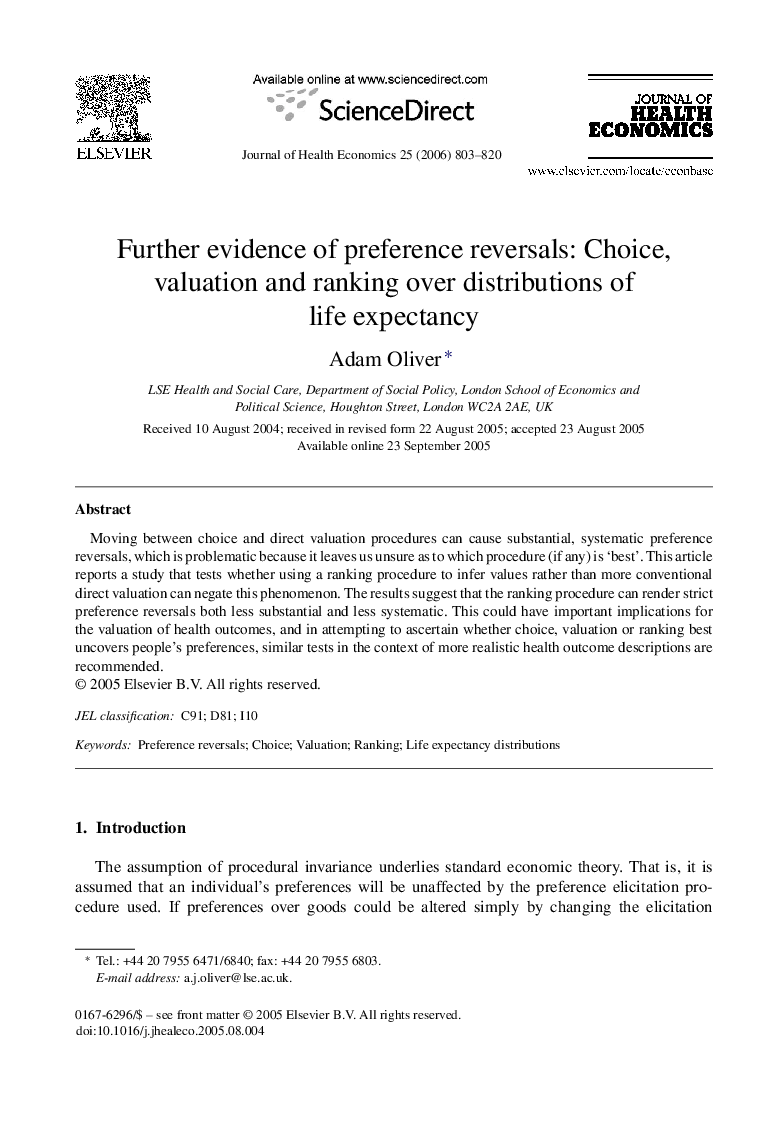| Article ID | Journal | Published Year | Pages | File Type |
|---|---|---|---|---|
| 961706 | Journal of Health Economics | 2006 | 18 Pages |
Abstract
Moving between choice and direct valuation procedures can cause substantial, systematic preference reversals, which is problematic because it leaves us unsure as to which procedure (if any) is 'best'. This article reports a study that tests whether using a ranking procedure to infer values rather than more conventional direct valuation can negate this phenomenon. The results suggest that the ranking procedure can render strict preference reversals both less substantial and less systematic. This could have important implications for the valuation of health outcomes, and in attempting to ascertain whether choice, valuation or ranking best uncovers people's preferences, similar tests in the context of more realistic health outcome descriptions are recommended.
Related Topics
Health Sciences
Medicine and Dentistry
Public Health and Health Policy
Authors
Adam Oliver,
